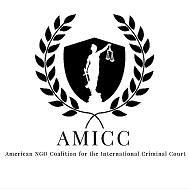ASP12 ended with a feeling of relief, as a
number of potential crises were averted, at least in the short-run. The
situation with Kenya and its support by the African Union was the main
event, but there was also a possibility that consensus around the budget would
disintegrate. In the end, the feared
crises did not materialize, though the underlying issues were not entirely
resolved. A major positive achievement of ASP 12 was that the Assembly took the
Court forward by operationalizing the Independent Oversight Mechanism, after
five years of difficult negotiations.
In its second week, ASP12 set about preventing a political rupture
among its membership. For some time the African states have indicated they feel
unfairly targeted by the ICC. This
displeasure came to a head at an extraordinary summit of the African Union
called by Kenya in October over the ongoing prosecutions of the Kenyan
President and Vice-President. Rumors
spread of a mass pullout of African states from the ICC. Though the mass pullout did not happen, a
group of African states subsequently made an Article 16 request to the Security
Council asking that the trials be deferred for one year. When that request was denied, African states
came to ASP12 seeking a change in the rules of procedure making it possible for
trials to proceed without the physical presence of the defendants.
The Working Group on Amendments thus became the locus of the
Africa-ICC confrontation and much of the second week was devoted to intense negotiation
over changes to RPE 134, with one side pressing for more latitude and flexibility
and the other emphasizing the absolute language of Article 63. Kenyon civil society also had a strong
presence at ASP12, and side-events reminded of the violence that originally
elicited the indictments. In the end,
Kenya abandoned its quest for an automatic excusal from presence at trial for
sitting heads of state, and the other side accommodated by approving use of
video technology and excusal from presence for “exceptional circumstances” or
fulfillment of “extraordinary public duties at the highest national level.” Least satisfied with the outcome may be the
Court itself, since all of the RPE 134 changes were left to its discretion. Nonetheless, African states welcomed the
changes, and the overall
feeling was that the integrity of the Rome Statute was not compromised - an
issue of great concern to delegates and NGOs alike.
Other rule changes were adopted: to RPE 100 (allowing for the Court
to sit in a State other than the host state) and to RPE 68 (allowing for the
use of prior recorded testimony).
The budget had threatened to become another source of division. Canada,
which wanted zero growth changes to the proposed 2014 Budget, had objected
to the recommendation of the Committee on Budget and Finance of 121,656,200
euros. Though lower than what the Court
requested, this figure had been seen as an acceptable compromise. In the end, Canada withdrew its objection,
while promising to monitor financial reports with a goal of reaching zero
nominal growth in 2015. This may collide
in the future with the Prosecutor’s new strategy, announced early at ASP12.
The Court, Registry, OTP
and other organs of the Court indicated that they are streamlining their
operations. The new Registrar, Herman van Hebel, is making necessary and
positive changes in the running of the Registry. However, the demands on the
Court continue to grow and financial increases are essential for it to fulfill
its mandate: to meet the demands of current cases and start new cases; to
provide more witness protection; to address victim representation and
reparation issues; to do more investigations and outreach, inter alia.
Victim support and complementarity were two other issues that were
much discussed but, in terms of concrete steps, left for the future. A new gender strategy will be announced
early in 2014.
The operationalization of the Independent Oversight Mechanism
culminated a difficult five-year process and is the signal most important
achievement of ASP12. This important
development will aid us immensely in our US advocacy.
Civil society organizations
were very active at this ASP, putting on side-events, evening receptions, and
multimedia art exhibitions. Topics
included complementarity, Libya, Syria and accountability, victims and victims’
rights, the Kenyan situation, witness protection, and more. The Women's Initiative for Gender Justice
released a report on prosecuting gender violence crimes at the ICC and
sponsored a panel on modes of liability, with representatives from the ICTY,
and the Special Court for Sierra Leone, among others. The Coalition members met
daily; over 200 of the 2500 CICC members were present at this ASP.
A new judge was elected –
Geoffrey Henderson of Trinidad and Tobago. The next ASP will take place in New
York City from December 8-17, 2014, where election of six new judges will take
place to fill seats left vacant by judges whose current terms are
expiring. At the close of the session,
Belgium announced that it had ratified both of the amendments adopted at
Kampala, on the crime of aggression and on Article 8.
In sum, at ASP12 the states parties undertook serious examination of
the problems that will need to be overcome for the Court to establish itself as
an international organization. Whether
the tenuous solutions achieved at ASP12 will resolve those problems in the
long-term remains uncertain.












